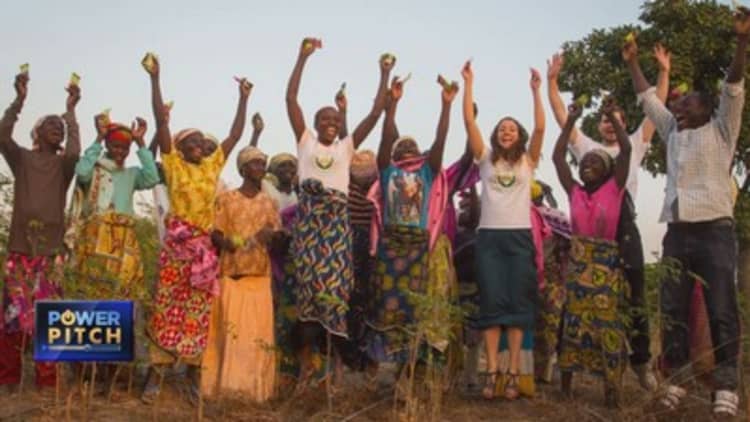
This start-up says the key to its success is a superfood you probably never heard of.
It's a leafy green vegetable called moringa, and entrepreneur Lisa Curtis claims it's "more nutritious than kale and provides a complete plant protein similar to quinoa."
Curtis first tried moringa while volunteering for the Peace Corps in Africa. While there, her vegetarian diet was limited to beans and rice. When she needed an energy boost, she would add moringa to a homemade peanut snack known locally as Kuli Kuli.
"Over 60% of Americans say that incorporating more vegetables and greens into their diet is their number one priority, but many find it difficult to get their greens at meals other than dinner," Curtis told CNBC.
Once back in the U.S., Curtis founded a start-up producing "greens on the go," as she calls it. And she named it Kuli Kuli, after the snack combo she loved and relied upon so much.
Food for thought
The start-up sells fruit bars, vegetable powder and energy shots on the company website, and in more than 800 stores nationwide. Prices vary by product but range from $2 to $4.
Venture capitalist Nir Liberboim questioned if Kuli Kuli might be more successful offering one single product, rather than an assortment of products.
"When you look at other companies that have introduced quinoa, acai or chia seed, they often focus on the ingredient and have a differentiated product line," the founder told CNBC.
"We think of our shots and our bars as a way to try moringa before they get to real green earthy stuff [Kuli Kuli's vegetable powder] that they add to their smoothies," Curtis added.
And consumers seem hungry for more. A 2015 report by research firm MarketsandMarkets projected that the global market for superfoods will reach approximately $2.5 billion by 2020.
Despite the growing superfood trend, Alicia Syrett, a start-up advisor who's invested in the consumer-food space, wondered how Kuli Kuli differentiated itself from other products using moringa.
According to Curtis, Kuli Kuli is "the first company to sell moringa food products in the U.S."
Although Kuli Kuli's bars and powders compete directly with other green bars and protein powders on the market, Curtis said that "careful pricing and strong branding" set the start-up apart. She added, "We have the highest quality and most socially responsible moringa on the market."
Kuli Kuli sources its moringa from Haiti and Ghana, but makes its product line in Oakland, California. The start-up recently teamed up with Whole Foods and the Clinton Foundation, a partnership designed to re-forest Haiti and support women-led farming cooperatives.
Since launching in 2013, more than 800,000 Kuli Kuli items have been sold, totaling $500,000 in sales, according to the founder. The start-up said it projects $1 million in sales by 2016, but is not yet profitable.
Kuli Kuli has scored $1.3M from two Indiegogo crowdfunding campaigns, angel investors and grants.
— By CNBC's Joanna Weinstein
— Comments, questions, suggestions? We'd love to hear from you. Follow us @CNBCPowerPitch and join the #PowerPitchconversation

